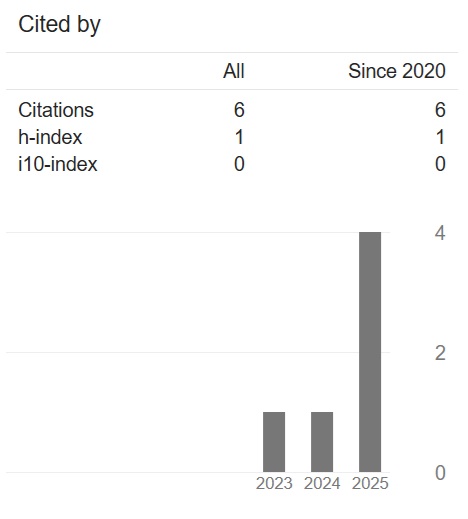حجّية الاستحسان عند الحنفيّة والشّافعيّة وآثاره في الحكم الشّرعيّ (دراسة مقارنة)
Authenticity of Approval According to the Hanafis and Shafi’is and Its Effect on the Sharia Rules
DOI:
https://doi.org/10.36701/bashirah.v3i2.614Keywords:
istihsan, hanafi, shafii, authentic of istihsan, legal ruling.Abstract
The study aimed to know the sayings of the Hanafi and Shafi’i scholars regarding the authority of istihsan in inference and its effects on the legal ruling. The scientific method that the researcher followed to reach the most important results of the research is the descriptive method, the inductive method, and then the deductive method. The most important results from this research: The approval that the Hanafis adhere to is the following of the best of the two evidence, either a hidden analogy in contrast to a clear analogy, or the exception of a partial issue from a general origin or a universal rule that requires that. As for the Shafi’is, they considered istihsan to be a statement of desire and desire. And when the term istihsan settled on a specific idiomatic meaning, Imam Al-Shafi’i took a positive position on it, rather he mentioned issues whose legal ruling was deduced through him and declared that he said, whether it is recommended or desirable. Here it became clear that the disagreement is a verbal dispute. And that the work with the correct approval agreed upon shows the flexibility of the tolerant Sharia and to achieve the interests of the nation and to preserve the hardship from the methods of analogy.
Downloads
References
al-‘Alā’ Muḥammad bin ‘Abd al-Ḥumaid al-Asmandī. Bażlu al-Naẓr fī al-Uṣūl. Ṭab’ah: al-Ūlā, maktabah al-turāṡ - al-qāhirah, 1412.
Abū al-Ḥasan Sayyid al-Dīn ‘Alī bin Abī ‘Alī bin muḥammad bin Aālim al-Ṡa’labī al-Āmidī. Al-Iḥkām fī Uṣūl al-Aḥkām. Ṭab’ah: bi dūni ṭab’ah, al-Maktab al-Islāmī, bairūt-dimasyq-libnān.
Abū Ḥāmid Muḥammad bin Muḥammad al-Gazālī al-Ṭūsī. Al-Mustaṣfā. Ṭab’ah: al-ūlā. Dār al-Kutub al-‘Ilmiyyah.
Abū Zaid `Abdu al-Raḥmān bin Muḥammad bin Khaldūn Walī al-Dīn al-Ḥaḍramī al-Isybīlī. Muqaddimah Ibn Khaldūn.
Abū Zaid `Abdullāh bin ‘Umar bin ‘Īsā al-Dabūsī al-Ḥanafī. Taqwīm al-Adillāh fī Uṣūl al-Fiqh. Ṭab’ah: al-Ūlā. Dār al-Kutub al-‘Ilmiyyah.
Aḥmad bin ‘Alī Abū Bakr al-Rāzī al-Jaṣṣāṣ al-Ḥanafī. Al-Fuṣūl fī al-Uṣūl. Ṭab’ah: al-ṡāniyah, wizārah al-auqāf al-kuwaitiyyah.
Ibnu Abī Syaibah, wa al-Ḥākim, wa al-Baihaqī fī Syu’ab al-Īmān bi ikhtilāf yasīr. Aḥmad wa al-Lafẓu lahu, wa al-Ṭabrānī.
Mālik bin Anas bin Mālik bin ‘Āmir al-Aṣbaḥī al-Madanī. Muwaṭṭa’ Mālik bī Riwāyah Muḥammad bin al-Ḥasan al-Syaibānī. Ṭab’ah: al-Ṡāniyah, al-Maktabah al-‘Ilmiyyah, 1431.
Muḥammad Abū Zahrah. Abū Ḥanīfah. Ṭab’ah: al-Ṡāniyah Dār al-Fikr al-‘Arabī, 1366.
Muḥammad Abū Zahrah. Al-Syāfi`ī Ḥayātuh wa ‘Aṣruh wa Ārā’uh wa Fiqhuh. Ṭab’ah: al-Ṡāniyah. Dār al-Fikr al-`Arabī.
Muḥammad Musṭafā Syiblī. Talīl al-Aḥkām. Ṭab’ah: al-Ṡāniyah. Dār al-Nahḍah al-`Arabiyyah, Bairūt.
Nu`mān Jugaim. Dirāsah Taḥlīliyyah lī Mafhūm al-Istiḥsān fī al-Mażhab al-Ḥanafī baina Marḥalatai al-Ta’sīs wa al-Tadwīn.
Muḥammad Mustafā al-Zuḥailī. Al-Wajīz fī Uṣūl al-Fiqh al-Islāmī. Ṭab’ah: al-ṡāniyah Dār al-Khair lī al-Ṭibā`ah wa al-Nasyr wa al-Tauzī`, Dimasyq-Sūriyah.
Al-Qur’ān al-Karīm
Sa’ad al-Sīn Mas`ūd bin `Umar al-Taftazānī. Syarḥ al-Talwīḥ `alā al-Tauḍīḥ. Ṭab’ah: bidūni ṭab`ah, wa bidūni tārīkh, Maktabah Ṣabīḥ bī Miṣr.
Sulaimān bin ‘Abdi al-Qawī bin al-Karīm al-Ṭūfī al-Ṣarṣarī, Abū al-Rabī’, Najm al-Dīn. Syarḥ Mukhtaṣar al-Rauḍah. Ṭab’ah: al-Ūlā, Mu’assasah al-Risālah.
al-Syāfi’ī Abū `Abdillāh Muḥammad bin Idrīs bin al-`Abbās bin `Uṡmān bin Syāfi` bin Abdil Muṭṭalib bin `Abdi Manāf al-Maṭlabī al-Qurasyī al-Makkī. Al-Risālah. Ṭab’ah: al-Ūlā, Maktabah al-Ḥalabī, Miṣr, 1358.
Wahbah al-Zuḥailī. Uṣūl al-Fiqh al-Ḥanafī. Ṭab’ah: al-Ūlā. Dār al-Maktabī, 1421.
Ya’qūb bin `Abdi al-Wahhāb al-Bāḥisīn. Kitāb al-Istiḥsān: Ḥaqiqatuh wa Anwā`uh wa Ḥujjiyyatuh wa Taṭbīqātuh al-Mu`āṣirah. Ṭab’ah: al-Ūlā, maktabah al-rusyd.



.jpg)









